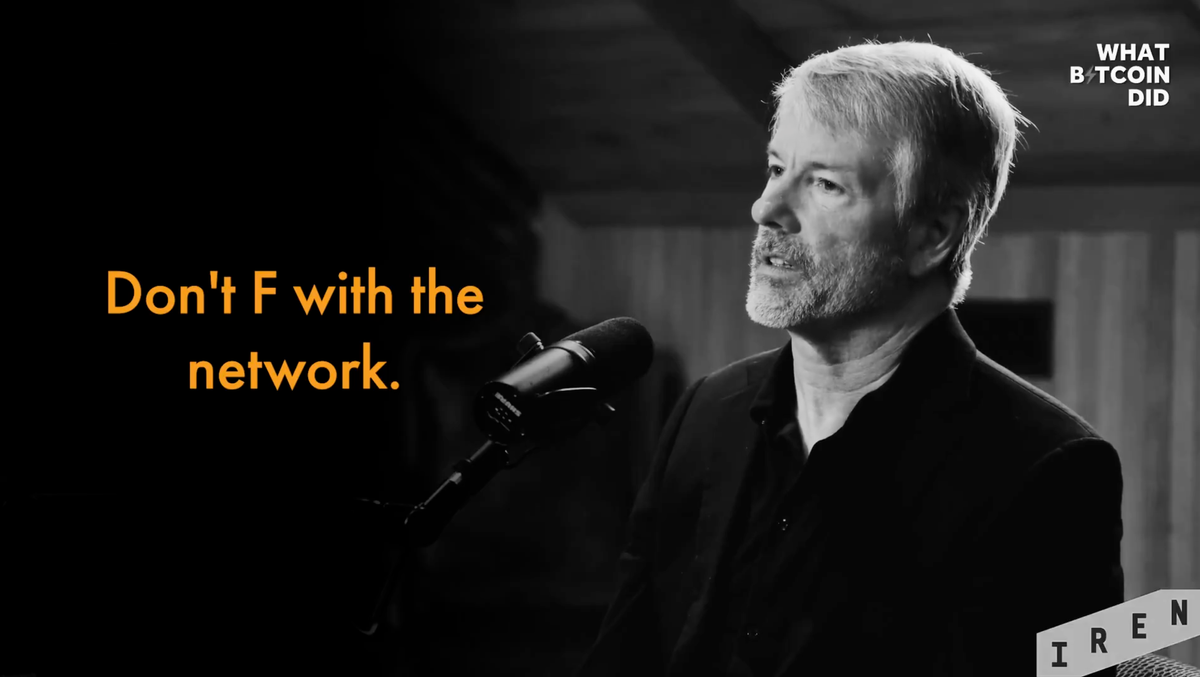
Michael Saylor, CEO of Strategy, joined host Peter McCormack on the What Bitcoin Did podcast, released on May 25th, 2024, to discuss Bitcoin governance, protocol stability, and the risks of expanding Bitcoin’s base layer.
The episode, originally published last year, is now circulating again on X as the debate over Bitcoin ossification resurfaces.
First, Do No Harm to Bitcoin.pic.twitter.com/ClFAm3libF
— Michael Saylor (@saylor) September 24, 2025
McCormack began the conversation by describing the contrast between conservative and progressive Bitcoin developers.
McCormack framed the debate as a tension between a conservative “old guard” of Bitcoin developers focused on caution and a newer group pushing for additional features and change.
McCormack added that in his view Bitcoin development is “considerate and conservative.”
Saylor argued that Bitcoin does not need constant protocol changes to succeed, describing the protocol as the system of governance that underpins and secures the entire network.
“If Bitcoin was a nation, the protocol is the body of laws that govern the nation and the protocol has no statute of limitations. So for all practical purposes, when you put something in the protocol, it's like writing a law that might very well last a thousand years.”
He drew a parallel between political philosophy and Bitcoin development. “I'm not in favor of big protocol. I'm in favor of small protocol. I'm in favor of do the minimum,” Saylor said.
He compared unnecessary protocol expansion to government overreach, adding that “the whole irony is Bitcoin is a technology to escape oppression of inflation and regulation. So why would we want to encourage inflation in the protocol?”
Reflecting on the block size wars, Saylor argued that past changes like Segregated Witness were inflationary.
“Segwit was inflation. It took the block from one megabyte to four megabytes,” he said.
“When you add functionality or scalability or performance, you're actually depriving someone else in the ecosystem of their property rights, of their opportunity.”
Saylor warned of the dangers of destabilizing Bitcoin miners and holders through protocol shifts.
“I accepted the risks of the existing protocol. When someone changes the protocol so as to bankrupt me, right, they have actually deprived me of my economic rights and introduced a risk I didn't sign up for.”
He pointed to Ethereum’s switch to proof-of-stake as an example of protocol change destroying an industry.
“It was a very targeted protocol change that basically deprived, you know, what's it worth to basically do Ethereum mining? Well, it would have been worth 100 billion dollars. What's it worth today? Zero.”
Saylor concluded by warning against favoring special interests.
“There are lots of protocol changes that actually destabilize the network or they deprive some participants of the network of their rights to the benefit of others. And my position is I just don't think we should deprive people of their rights. And I don't think we should use code in order to advantage one special interest group to the disadvantage of everybody else.”

